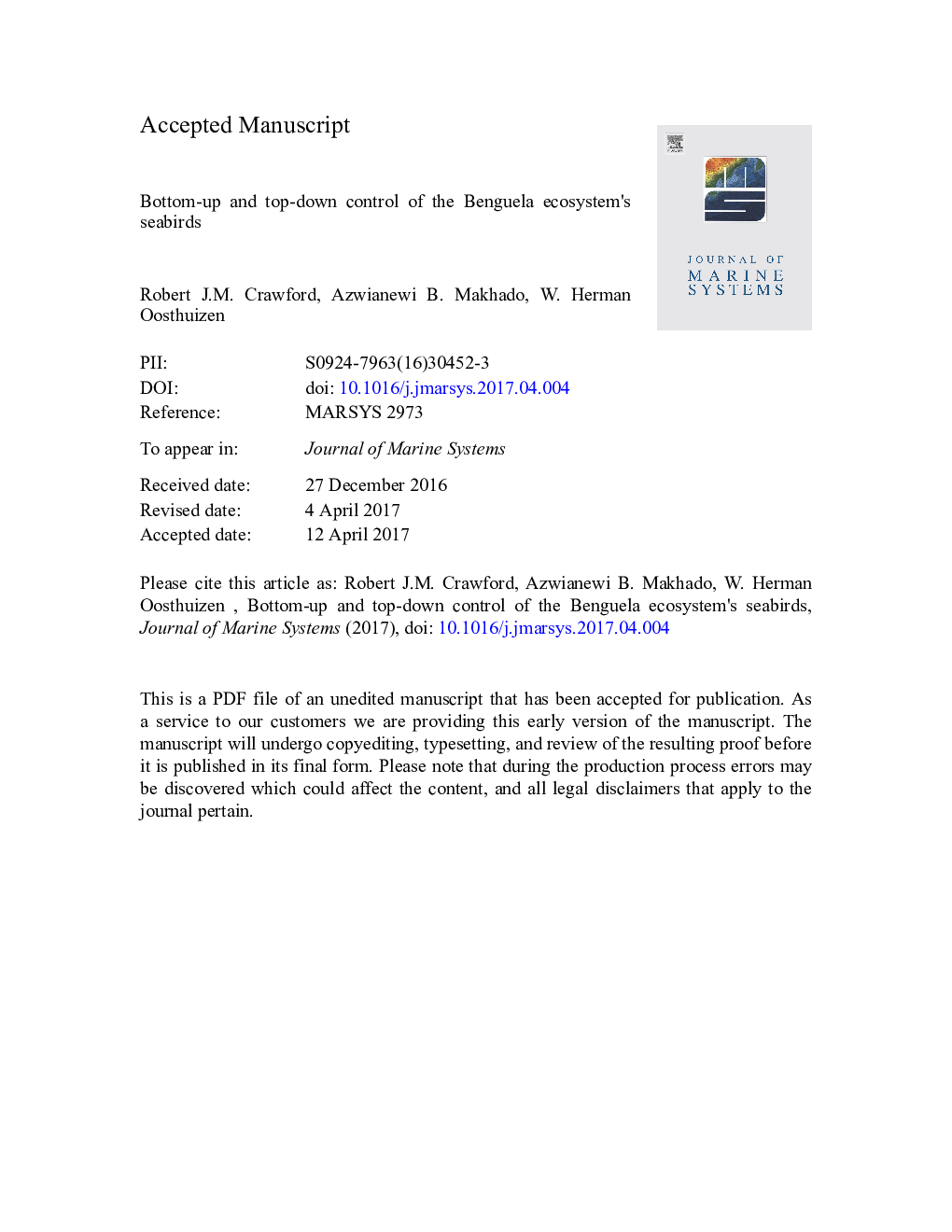| Article ID | Journal | Published Year | Pages | File Type |
|---|---|---|---|---|
| 10223879 | Journal of Marine Systems | 2018 | 23 Pages |
Abstract
Ten of the 15 seabird species that breed in the Benguela upwelling ecosystem, including six species that are endemic to it, are now classified as threatened or near-threatened in terms of Red List criteria. Both bottom-up (operating from lower in the food chain) and top-down (operating from higher in the food chain, or outside it) processes have influenced the seabirds. Historical harvests of eggs and guano caused a large decrease in numbers of African penguins Spheniscus demersus and altered their breeding habitat. More recently, food scarcity reduced the populations of several species that compete with fisheries for prey and was largely responsible for the recent collapse of penguins in South Africa. Predation, oiling and disturbance also have adversely affected seabirds and their relative impact may increase as species populations and sizes of colonies decrease. Co-ordinated management of the different factors diminishing populations will be necessary if the conservation status of seabirds in the Benguela ecosystem is to be improved.
Related Topics
Physical Sciences and Engineering
Earth and Planetary Sciences
Oceanography
Authors
Robert J.M. Crawford, Azwianewi B. Makhado, W. Herman Oosthuizen,
